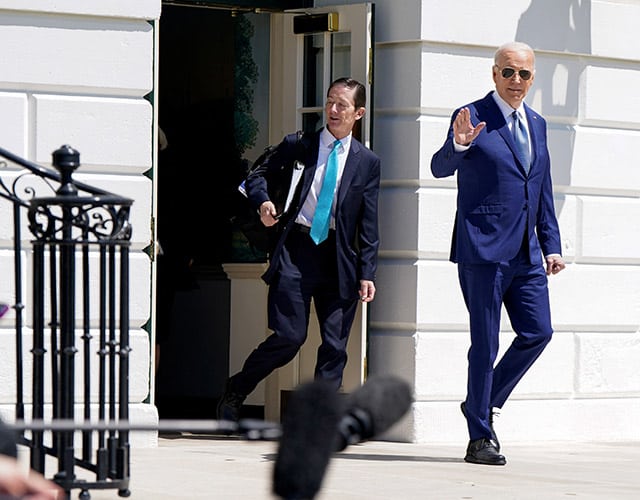The administration of U.S. President Joe Biden on April 23 unveiled a rule extending mandatory overtime pay to an estimated 4 million salaried workers, going even further than an Obama-era rule that was struck down in court.
The U.S. Department of Labor rule will require employers to pay overtime premiums to workers who earn a salary of less than $1,128 per week, or about $58,600 per year, when they work more than 40 hours in a week.
The current salary threshold of about $35,500 per year was set by the Trump administration in a 2020 rule that worker advocates and many Democrats have said did not go far enough.
The rule does not affect overtime requirements for workers who are paid hourly.
Julie Su, the acting secretary of labor and Biden’s nominee to fill the post permanently, said in a statement that the rule ensures that workers either earn more money or are paid the same to work fewer hours.
“Too often, lower-paid salaried workers are doing the same job as their hourly counterparts but are spending more time away from their families for no additional pay,” Su said.
Under the rule, the salary threshold will increase to $43,888 on July 1 and to $58,656 on Jan. 1, 2025. And starting in 2027, the threshold will automatically increase every three years to reflect changes in average earnings.
U.S. wage law requires employers to pay eligible workers one and one-half times their regular rate of pay when they work more than 40 hours in a week. Salaried workers who earn above the salary threshold may still be eligible for overtime pay if they do not primarily perform management-related duties.
Workers are generally automatically exempt if they earn a salary of more than $107,432. The new rule will raise that cutoff to about $151,000.
Several states, including California and New York, have salary thresholds for determining overtime eligibility that are higher than the current federal standard.
The Labor Department in 2016 doubled the salary threshold to about $47,000. A federal judge in Texas the following year said that ceiling was so high that it could sweep in some management workers who are exempt from overtime pay protections, and struck it down.
The new rule is likely to face legal challenges arguing that like the Obama administration rule, it violates federal wage law by including many lower-paid supervisors and professionals who typically would not be eligible for overtime.
Many major business groups had called on the department to put off any changes to overtime pay regulations, citing economic uncertainty and worker shortages that have raised companies’ operating costs.
“This rule … comes as many entrepreneurs continue to struggle in today’s unpredictable regulatory climate, grappling with lingering inflation, labor challenges, and high costs of goods,” Michael Layman, senior vice president at the International Franchise Association, said in a statement.
And the rule could harm workers by pushing many businesses to convert salaried jobs into hourly positions, lowering employees’ pay and taking away some benefits, according to Rep. Virginia Foxx, a Republican from North Carolina and chair of a U.S. House of Representatives labor committee.
“If the administration’s goal with this rule is to improve the standard of living for workers, then it’s failing miserably,” Foxx said in a statement.
Meanwhile, unions, worker advocacy groups and many Democrats have supported the rule.
The AFL-CIO, the country’s largest labor federation, in a statement praised the Biden administration’s move for restoring overtime protections that it said had been “gutted” by the Trump administration.
This article was provided by Reuters.







